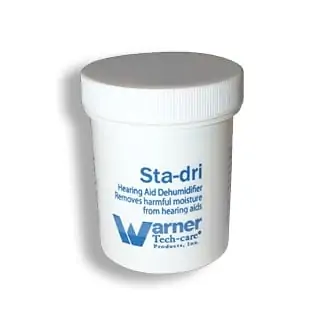Moisture is one of the biggest hearing aid killers. With summer fast approaching, keeping your hearing aids protected becomes increasingly important. Summer rains, sweaty days spent outside, dip in the pool, and even high humidity can threaten the life and health of your hearing aids. We can help!
How Does Moisture Hurt Your Hearing Aids?
Like your cell phone or laptop, hearing aids are electronic devices. We know that most electronic devices can’t handle much water—but why? A couple of things can go wrong when electronic devices like your hearing aids get wet.
Moisture can cause an electrical shortage in your hearing aids. Your devices have delicate components and circuits that can be seriously damaged when water enters them. Water can lead electricity down paths that were never meant to travel, causing overload and destruction to your device. This, in turn, causes your hearing aids to malfunction or stop working altogether.
Excess water can also cause corrosion on your hearing instruments. These devices are made up of metal elements that can be sensitive to corrosion from moisture. This corrosion inside your hearing aids can cause them to work inefficiently or stop altogether. The metal parts in your hearing aids come with a layer of protection to prevent corrosion. Still, if your hearing aids are repeatedly exposed to moisture and not adequately dried, the protective coating will wear down.
Warning Signs of Water Damage
If you’re not using a drying device for your hearing aids, chances are high that you experience water damage to your hearing aids. Here are a few signs that your hearing aids might have water damage:
- Intermittent outages: your hearing aid completely stops working and then comes back on.
- Sound distortion: the sound in your hearing aids becomes less clear or distorted.
- Static or cracking: everything you hear through your hearing aids is punctuated by static or sounds crackly.
- Fading: sound fades in and out or comes and goes.
If you experience any of these issues, it’s important to take your hearing aids in to your hearing professional as soon as possible.
How To Protect Your Hearing Aids From Moisture
We have a few ways that you can protect your hearing aids and keep them dry, but it’s important to note that the first step has already been taken without you ever knowing! Your hearing aids do have built-in protections for a small amount of moisture. They more than likely won’t just quit working if you get caught in the rain one time. They’re built to withstand the humid environment of your ear canal, but taking steps to prevent water damage can help maintain better sound quality. Here’s how you can keep your hearing aids safe.

Electronic Hearing Aid Dryer
An electronic hearing aid dryer is simple to use. It plugs into the wall and uses dry heat to help evaporate moisture. All you have to do is put your hearing aids in at night when you go to bed, push the button on the front, and when you wake up they’ll be good to go!

UV Cleaning Box
This UV Cleaning Box works similarly to the electronic moisture guard box, but it uses UV-C light to clean and heated natural air to dry hearing aids. This particular one is made by Unitron. It has settings for either three or six hours, and comes with cleaning wipes to wipe hearing aids with afterward.

Sta-Dri Dehumidifier
This humidifier option is compact and great for traveling. It has a small desiccant pack inside to draw moisture out of your hearing aids. You just need to drop the hearing aids into the can for a little while, and before you know it your hearing aids will be moisture free and ready to go.
If you have rechargeable hearing aids, your charging case probably also works as a dehumidifier! Just another reason why we love rechargeable hearing aids.
Keep Your Hearing Aids Dry
To keep your hearing aids completely dry, you’ll need a hearing aid dryer. But, a dehumidifier with a desiccant pack will help protect your hearing aids as a cheaper option. The best way to protect your hearing aids from moisture is to be mindful of them and don’t wear them in situations where they could get damaged from water, but it’s likely that they’ll run into moisture in some form any way. That’s why it’s important to have some kind of hearing aid dehumidifier or dryer. Protect your investment – keep your hearing aids safe and dry.

